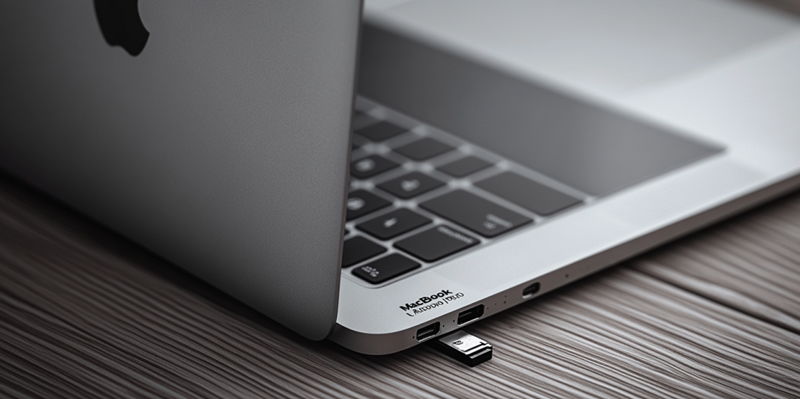The tech giant Apple is set to redefine its hardware standards with the forthcoming release of MacBook Pro laptops that feature the highly anticipated M4 silicon chip. Along with this technological advancement, Apple is making a significant shift in its baseline memory configuration, moving from the long-standing 8GB to 16GB, complemented by 512GB of storage. This bold move underscores Apple’s response to the growing demand for higher memory capacities in professional computing devices, especially crucial for the emerging needs in AI and machine learning applications.
Introduction of M4 Silicon in MacBook Pro
Apple first introduced its M4 chip for the iPad Pro back in May, but the excitement surrounding this innovation will now extend to the MacBook Pro models. A packaging leak suggests these laptops will come with major upgrades, including a significant boost in standard configurations. The integration of the M4 silicon chip is expected to bring unparalleled performance, making these devices even more powerful and efficient for professional users.
Memory Upgrades
One of the most talked-about features of the new MacBook Pro models is the rumored increase in baseline memory to 16GB. This is a substantial leap from the previous 8GB standard and aligns with Apple’s recent decision to increase the RAM requirements for Xcode 16 to 16GB. The move is particularly significant given the increasing demands of AI-based applications and software development, which require more robust hardware to function seamlessly.
Apple’s Shift in Baseline Configurations
Historically, Apple has maintained that 8GB of RAM on macOS provides a user experience comparable to 16GB on Windows systems. However, the increasing complexity of tasks, especially those involving AI, has necessitated a shift in baseline memory. This change reflects the growing need for enhanced performance capabilities in Apple’s devices, enabling them to handle more complex and resource-intensive tasks efficiently.
Impact on Other Products
While the MacBook Pro is set to benefit from this memory upgrade, it remains uncertain whether Apple will extend similar improvements to the MacBook Air. Traditionally, the Air has featured 8GB of memory and 256GB of storage in its base models, positioning it as an affordable entry-level laptop. There is skepticism about whether the Air will adopt these upgrades due to potential cost implications and its market positioning.
AI and Machine Learning Integration
The increased memory is part of Apple’s broader push to incorporate Apple Intelligence, capabilities that enable running large language models directly on the device. This is evident in the iPhone 16’s RAM upgrade from 6GB to 8GB, which supports on-device AI processing. By boosting memory across its devices, Apple aims to enhance the functionality and efficiency of AI-powered applications, positioning itself as a leader in technology innovation.
Overarching Trends and Consensus
Apple’s focus on higher memory capacities is in sync with the evolving computational needs driven by AI and machine learning. The advancements in M-series chips continue to promise improved performance and efficiency, setting a new standard in Apple’s hardware lineup. This elevation in baseline hardware specifications is a trend observed across the tech industry, aimed at meeting the demands of sophisticated software and AI applications.
Conclusion
Apple is preparing to revolutionize its hardware lineup with the upcoming release of MacBook Pro laptops that will feature the new and highly anticipated M4 silicon chip. This advancement signifies a major leap in processing power and efficiency. Additionally, Apple is making a transformative change in its baseline memory configuration. The long-standing default of 8GB RAM will now be upgraded to 16GB, accompanied by 512GB of storage. This shift highlights Apple’s proactive response to the increasing demand for higher memory capacities, particularly essential for modern professional computing needs, including those related to emerging applications in artificial intelligence (AI) and machine learning. This drastic upgrade will allow users to handle more tasks simultaneously, improving overall performance and productivity. With these new advancements, Apple aims to set a new benchmark in the industry, ensuring that its devices are equipped to meet the rigorous demands of today’s and tomorrow’s technological landscape, staying ahead in the competitive market.

